#Female Genital Mutilation
Text
Thursday, October 26th, 2023
A woman has been found guilty of handing over a three-year-old British girl for female genital mutilation (FGM) during a trip to Kenya, in the first conviction of its kind.
After a trial at the Old Bailey, Amina Noor, 39, was convicted of assisting a Kenyan woman to carry out the procedure in 2006. The conviction, which carries a maximum sentence of 14 years, is the first for assisting in such harm under the Female Genital Mutilation Act 2003.
The only other successful prosecution under the act was in 2019 when a Ugandan woman from Walthamstow, east London, was jailed for 11 years for cutting a three-year-old girl.
Campaigners said the verdict showed that the introduction in 2015 of mandatory reporting of suspected FGM was working.
The senior crown prosecutor Patricia Strobino hailed Noor’s conviction, saying: “This kind of case will hopefully encourage potential victims and survivors of FGM to come forward, safe in the knowledge that they are supported, believed and also are able to speak their truth about what’s actually happened to them.
“It will also send a clear message to those prospective defendants or people that want to maintain this practice that it doesn’t matter whether they assist or practise or maintain this practice within the UK or overseas, they are likely to be prosecuted.”
Strobino added: “Part of the challenge of this type of offence is the fact that these types of offences occur in secrecy. Within specific communities within the UK, although these offences and practices are prevalent, it is often very difficult to get individuals to come forward to explain the circumstances of what’s happened to them because there was a fear that they may be excluded or pushed away or shunned, isolated from their community.”
Previously, the prosecutor Deanna Heer KC said Noor travelled to Kenya with the girl in 2006 and while there took her to a private house where the child was subjected to FGM.
The crime only came to light years later when the girl was 16 and confided in her English teacher at school.
When spoken to, the defendant said she thought the procedure was just an injection and that afterwards the girl was “happy and able to run around and play”. But when examined in 2019, it emerged that the girl’s clitoris had been removed.
Noor appeared “shocked and upset” and said that was not what she had thought was going to happen, Heer said. According to an initial account, Noor described going with another woman to a “clinic” where the girl was called into a room for a procedure.
The defendant said she was invited in but refused because she was “scared and worried”. Afterwards, the girl appeared quiet and cried the whole night and complained of pain, according to the account.
In a later police interview under caution, Noor denied that anyone had made threats against her before FGM was done to the girl.
Heer said: “She was asked whether, when she arrived at the clinic or even before then, she felt she did not want it to happen. She said: ‘Yeah I thought about it but then, you know, got it done.’”
Jurors were told the defendant was born in Somalia and moved to Kenya at the age of eight during the civil war in Somalia. She was 16 when she came to the UK and was later granted British citizenship.
The defendant described what had been done to the girl as “Sunnah”, meaning “tradition” or “way” in Arabic, and said it was a practice that had gone on for cultural reasons for many years.
Giving evidence in her trial, Noor, from Harrow, in north-west London, said she was threatened with being “cursed” and “disowned” within her community if she did not take part. She told jurors that the threat gave her “pain”, adding: “That was a pressure I had no power to do anything about.”
The alleged victim, who is now 21, cannot be identified for legal reasons.
Nimco Ali, an FGM survivor who founded the Five Foundation, a global partnership to end the cutting of girls, welcomed the verdict.
She said: “It is incredible that the mandatory reporting by teachers and healthcare professionals – that we have fought hard for – is starting to pay off. A girl was obviously failed. She was let down by the system but she got some form of justice today thanks to the policies that we now have in place.”
She added: “We have to address FGM in the UK and everywhere by working together to address the root causes of the issue.”
Research in 2014 estimated that 137,000 women and girls are affected by FGM in England and Wales. Ali said this estimate needed updating urgently.
308 notes
·
View notes
Text
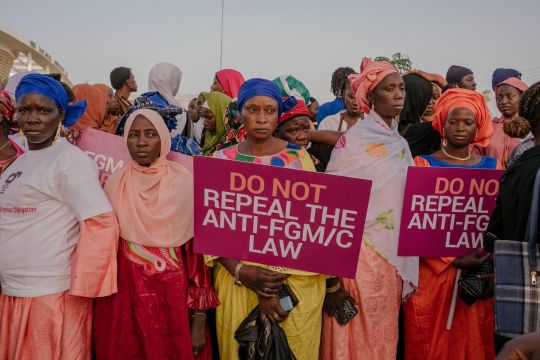
Very important and heartbreaking news.
(Organizations to support at the end of the post)
March 19th, 2024
https://www.washingtonpost.com/world/2024/03/19/gambia-female-genital-mutilation-cutting/
Gambia moves towards ending ban on female genital mutilation
Gambia’s National Assembly has voted to advance a bill that would overturn a ban on female genital cutting, putting this tiny West African country on a path to being the first nation in the world to roll back such a protection.
Many of the women who filed into the National Assembly building on Monday to witness the proceedings had experienced the horror that comes with cutting, which has been practiced for generations here. One woman said she was taken by her family at age 8 to a ceremony in which she was pinned down and cut. Another learned on her wedding night that her vaginal opening had been sealed. A third experienced years of infections and later infertility after being cut without her parents’ permission.
The women listened stoically as members of parliament — the vast majority of them men — pounded their gavels in support as Almameh Gibba, the lawmaker who introduced the bill, described it as intended to “uphold religious rights and safeguard cultural norms and values.” (...)
Already, the United Nations says that about 75 percent of girls and women in Gambia between the ages of 15 and 49 have been subjected to genital cutting, which is often described by opponents as female genital mutilation, or FGM. Globally, more than 200 million women and girls are estimated to be survivors of female genital cutting, which can involve removing part of the clitoris and labia minora and, in the most extreme cases, a sealing of the vaginal opening. Medical experts say the procedures, which do not have medical benefits, can cause a range of short- and long-term harms, including infections, severe pain, scarring, infertility and loss of pleasure.
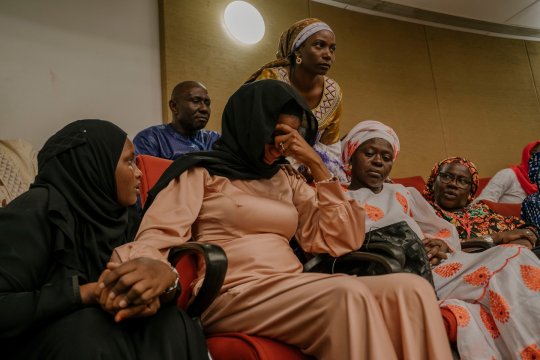
An activist cries and gets support during a debate among Gambian lawmakers on lifting the ban on FGM. (Carmen Yasmine Abd Ali for The Washington Post)
“It is a rollback on women’s rights and bodily autonomy,” said Jaha Dukureh, a Gambian activist whose little sister died as a result of a botched procedure and who found out on her wedding night, at 15, that she had been sealed as a baby. “It is a rollback in terms of telling women what to do with their own bodies. This is all this is.” (...)
Outside the National Assembly on Monday, women and men holding signs that read, “Girls need love, not knives” squared off against Muslim clerics who were preaching to dozens of veiled girls from Islamic schools. They cheered as one cleric told them [female genital mutilation] was justified by religion.
Inside the building, where only five of Gambia’s 58 lawmakers are women, the discussion Monday was dominated by men. Among the survivors in the audience was Sainey Ceesay, the founder of a nonprofit focused on destigmatizing infertility, who said she only recently decided to start talking about what she experienced at 8 years old. At that time, women had gathered her and a group of other girls at a house in Banjul, the capital, and used a razor to cut off her clitoris.
Ceesay, who said she suffered for years from trauma and infections and was unable to conceive, is still holding out hope that the ban will not be repealed. “At least as of today, FGM is still illegal in Gambia,” she said with a quiet sigh.
Fatty, the cleric whose support helped push the bill forward, (...) explained that it was about following the teachings of the prophet, about purity and about reducing the likelihood of cancer. (Doctors say there is no basis for this claim.)
“It is something not to reduce feeling, but to control, to balance the feelings of a woman,” he said in an interview.
When asked to clarify whether he meant women have too much desire in the absence of cutting, he nodded his head and wagged a finger.
“Too much,” Fatty said. “Too much. We can say in sex, women’s power is more than men’s power. … Women can do sex longer than men. So that is why Islam came to balance. They can be together and their desire can be balanced.” (...) [Many Islamic countries do not have FGM.]
(...) Many women note that because cutting often happens when girls are no older than in elementary school, they are never given a choice in the matter. (...)
Fatou Baldeh, an activist and FGM survivor (...), said she tries to “hold grace” for the women who continue to advocate for the practice, knowing many have not been educated and have only their own experience to go by.
But sitting in the parliamentary chambers Monday as she listened to the men debate, Baldeh said she was seething.
When one activist started wiping tears from her eyes with tissues, a lawmaker demanded that women who were crying leave the chambers, and the speaker agreed, asking them not to make a scene.
Baldeh said she wanted to scream listening to the men trivialize the pain women had experienced. But she resolved to stay in the chambers, knowing the importance of the women being present, forcing the men to look at them as they cast their votes.
“We have a right to cry,” she said. “But we knew the importance of staying. So we kept our tears in.”
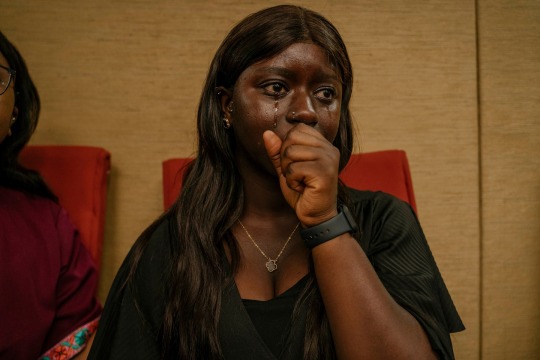
An activist cries during the parliamentary debate on FGM. (Carmen Yasmine Abd Ali for The Washington Post)
Full support and encouragement to the brave Gambian activists fighting to end FGM.
Support organizations and activists:
Safe Hands For Girls (survivor-led organization focused on ending female genital mutilation and child marriage, and helping women and girls who have gone through or are going through these experiences): website, X/Twitter, Instagram, YouTube.
Jaha Marie Dukureh (activist, founder of Safe Hands For Girls): X/Twitter.
Women in Liberation and Leadership (Gambian NGO): website, X/Twitter.
Fatou Baldeh (activist, in WILL) on X/Twitter.
Network Against Gender-Based Violence Gambia: X/Twitter, Facebook.
(Racists, transphobes, and other hate groups do not interact)
#feminism#bodily autonomy#feminist#gambia#africa#current events#human rights#fgm#female genital mutilation#women's rights#💬
54 notes
·
View notes
Text
‘Over my dead body’, say Gambian mothers amid efforts to lift FGM ban | FGM | Al Jazeera
In 2015, the Gambian parliament took the historic step to pass the Women’s (Amendment) Act of 2015, which criminalised FGM and made it punishable by up to three years in prison – a significant shift after years of advocacy.
But recently, on March 18, politicians voted 42 to 4 to advance a controversial new bill which would repeal the landmark FGM ban if it passes following further consultation and expert opinion from specialised government ministries.
48 notes
·
View notes
Photo


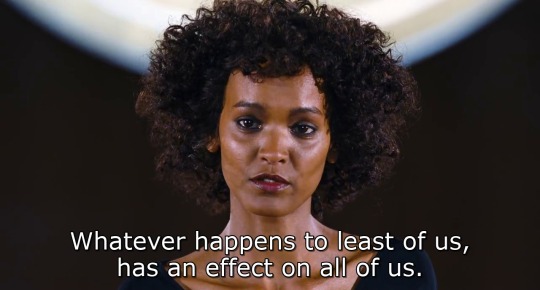
Desert Flower (Sherry Hormann, 2009)
#Desert Flower#drama film#Waris Dirie#refugees#modeling#biographical film#London#2000s movies#Somalia#excision#female genital mutilation#Africa#immigrants#England#UK#Sherry Hormann#Liya Kebede#Sally Hawkins#homelessness#Fleur du désert#supermodels#Wüstenblume#fashion models#Flor del desierto#Цветок пустыни#デザートフラワー#wisdom#autobiography#women's rights#FGM
56 notes
·
View notes
Text

39 notes
·
View notes
Text
God it isnt enough to rape little girls, they also have to make sure sex is as painful as possible for them forever, with no pleasure at all, and childbirth deadly. These fucking men are sexually sadistic and evil as you can get.
#female genital mutilation#fgm#female oppression#misogyny#medical sadism#male violence#medical misogyny#op
10 notes
·
View notes
Note
have you heard experiences from women who take/used to take testosterone and then lose the ability to orgasm?
Yes, it's not common but it's a result of "bottom growth" or clitoromegaly. It seems that in a minority of cases the clitoral tissue grows faster than the nerves, and it blunts their sexual sensation permanently.
The writer of this Reddit post says "Orgasms feel like hiccups now, they last less than 5 seconds, the whole body sensation, gone."
The writer of this post says, "I can still cum with a vibrator but it feels so much less intense than before, and sometimes feels like nothing even while cumming. I think my clit is just massively desensitized now from taking T. I hate having sex now (and haven’t in a while) because I don’t get very turned on no matter what..."
The writer of this post, one year after stopping testosterone, states, "My sex drive is almost nonexistent and my orgasms barely feel like anything."
21 notes
·
View notes
Text
Gambia's parliament of 58 lawmakers includes five women. If the bill eventually passes through parliament, President Adama Barrow is expected to sign it into law. He has not spoken publicly about the legislation."
Ladies, this is why "every vote counts" means everywhere elections are held. Vote more women into office
Lawmakers in Gambia have referred a repeal of the 2015 ban on female genital cutting for further committee discussions
By ABDOULIE JOHN Associated Press and JESSICA DONATI Associated Press
March 18, 2024, 8:49 AM
SERREKUNDA, Gambia -- Lawmakers in Gambia referred an attempted repeal of the 2015 ban on female genital cutting for further committee discussions on Monday.
Gambian activists fear a repeal would overturn years of work to better protect girls and women. The legislation was referred to a national committee for further debate and could return to a vote in the weeks and months ahead.
Activists in the largely Muslim country had warned that lifting the ban would hurt years of work against a procedure often performed on girls younger than 5 in the mistaken belief that it would control their sexuality.
The procedure, which also has been called female genital mutilation, includes the partial or full removal of external genitalia, often by traditional community practitioners with tools such as razor blades or at times by health workers. It can cause serious bleeding, death and childbirth complications but remains a widespread practice in parts of Africa.
Jaha Dukureh, the founder of Safe Hands for Girls, a local group that aims to end the practice, told The Associated Press she worried that other laws safeguarding women’s rights could be repealed next. Dukureh underwent the procedure and watched her sister bleed to death.
“If they succeed with this repeal, we know that they might come after the child marriage law and even the domestic violence law. This is not about religion but the cycle of controlling women and their bodies,” she said. The United Nations has estimated that more than half of women and girls ages 15 to 49 in Gambia have undergone the procedure.
The bill is backed by religious conservatives in the nation of less than 3 million people. Its text says that “it seeks to uphold religious purity and safeguard cultural norms and values." The country’s top Islamic body has called the practice “one of the virtues of Islam."
Gambia's former leader, Yahya Jammeh, banned the practice in 2015 in a surprise to activists and with no public explanation. Since the law took effect, enforcement has been weak, with only two cases prosecuted.
On Monday, a crowd of men and women gathered outside Gambia's parliament, some carrying signs protesting the bill. Police in riot gear held them back.
Gambia's parliament of 58 lawmakers includes five women. If the bill eventually passes through parliament, President Adama Barrow is expected to sign it into law. He has not spoken publicly about the legislation.
The United States has supported activists who are trying to stop the practice. Earlier this month, it honored Gambian activist Fatou Baldeh at the White House with an International Women of Courage Award.
The U.S. Embassy in Gambia declined to say whether any high-level U.S. official in Washington had reached out to Gambian leaders over the bill. In its emailed statement, Geeta Rao Gupta, the top U.S. envoy for global women's issues, called it “incredibly important” to listen to the voices of survivors like Baldeh.
The chairperson of the local Center for Women’s Rights and Leadership, Fatou Jagne Senghore said the bill is “aimed at curtailing women’s rights and reversing the little progress made in recent years.” The president of the local Female Lawyers Association, Anna Njie, said the practice “has been proven to cause harm through medical evidence.”
UNICEF said earlier this month that some 30 million women globally have undergone female genital cutting in the past eight years, most of them in Africa but some in Asia and the Middle East.
More than 80 countries have laws prohibiting the procedure or allowing it to be prosecuted, according to a World Bank study cited this year by a United Nations Population Fund Q&A published earlier this year. They include South Africa, Iran, India and Ethiopia.
“No religious text promotes or condones female genital mutilation,” the UNFPA report says, adding there is no benefit to it.
Girls are subjected to the procedure at ages ranging from infancy to adolescence. Long term, it can lead to urinary tract infections, menstrual problems, pain, decreased sexual satisfaction and childbirth complications as well as depression, low self-esteem and post-traumatic stress disorder.
#Gambia#female genital mutilation#Trying to control women through violence#Safe Hands for Girls#Using religion to harm women#Using culturepal traditions to harm women#No religious text promotes or condones female genital mutilation
3 notes
·
View notes
Text
If I may be open for a moment- (it is my blog and I can be open if I like, but) I have only recently begun interacting with others recently despite having this blog for so many years, it worries me to post any private or personal ancedotes on here but-
FGM terrifies me.
The first time I had ever heard of it was from an episode of Law and Order: SVU when it originally aired in 1997, and I was 4 years old. I didn't know was "genitals" were, or "mutilation" was, so I asked my mom. She looked at me, I distinctly remember her eyebrows creasing in the middle and her eyes just looking so sad and saying, "its when they cut girls private parts. It hurts them." She made a slicing motion with her hand against her arm. I remember being glad they arrested the person responsible for this crime.
The second time I had heard of Female Genital Mutilation was Khadija Gbla's Ted Talk in 2014:
youtube
I'm not sure if it was on tumblr originally, but it came with the chart she speaks of. I remember not being able to sleep that night because I was hyperaware of my own body parts and it mixed with complete sorrow for all the women and girls of the world that have had this performed on them.
If you are aware that a child is danger of being mutilated, SaveTheChildren is an organization I have personally donated to that has a anonymous hotline that you can use to report it.
#original post#religion as sex based oppression#sex based oppression#female genital mutilation#anecdote#resources#ted talk#khadija glba#savethechildren#Youtube
27 notes
·
View notes
Text
(TW!!!) On Female Genital Mutilation and why it‘s incomparable
We need to raise more awareness to this topic. Female genital mutilation (FGM) is a serious and massive crime against young girls and women, and their humanity.
There are a lot of men comparing male genital mutilation to female genital mutilation, asking questions and making discussions about why it’s not treated equally by society and especially feminists, but it honestly CANNOT be compared.
To make this clear, most people are against the circumcision of young boys. And as far as I know, every single feminist, whether liberal or radical, doesn’t condone it. It‘s inhumane, should be forbidden and has to be punished.
Nevertheless, circumcision and FGM are not on the same page — not even in the same book!
The "simplest" form of FGM is the removal of the clitoris, to which the male equivalent would be the removal of the glans.
But now let‘s dig deeper: FGM can go even further in many (most) cases. It includes the removal of the inner and outer labia. It includes sewing the open wounds together until the entire vulva is practically gone, and only a tiny hole for peeing, menstruating, intercourse and childbirth remains.
As a result, young girls and women are in constant pain for the rest of their lives and struggle with severe health issues. They have to pass blood through their mutilated body parts monthly, have to urinate painfully and can‘t sit or walk without repercussions.
Furthermore, when they‘re married to a man, the penetration tears the hole apart and "widens" it. So not only any form of sexual pleasure is taken from them, but intercourse (and let‘s be honest, these girls and women are RAPED) is incredibly painful. Every. Single. Time.
Then, they get impregnated and have to birth a child through their horrifyingly mutilated body parts. Pregnancy and childbirth are already terrifying for women who didn’t suffer FGM, so imagine how it must be for these girls and women.
And I need to add that the procedure itself is already life-threatening. It‘s oftenly done without anesthesia, and in an unhygienic environment with amateur tools. Many girls DIE because they get infected etc. and none of this is an exaggeration.
So, instead of drowning in comparison and whataboutism, we should be able to focus on prevention, intervention and HELP for these girls and women without someone throwing in boys‘ circumcision (which, again, is also cruel and shouldn’t happen).
There are resources and methods to un-do some of the FGM done to these women, and they should be explored and advanced as much as possible and we should fight for these girls and women as much as possible. It‘s treated like a non-issue although chances are disgustingly high that right now, in the very moment you read this, several girls are tortured and traumatized.
The psychological harm is immense. The physical harm is immense. And the awareness and solidarity is so small, don‘t you see?
These girls and women are worth fighting for. Their health and safety have to be a priority. It‘s a long way but it doesn’t get shorter when we choose to wait and refuse to take action.
#feminism#radical feminism#radfem#radfems please touch#radfems do touch#radfems do interact#female genital mutilation#women rights#protect women#raise awareness#spread awareness
22 notes
·
View notes
Text
The sado-ritual of excision and infibulation bestows acceptability upon gynocidal behavior— even to the extent of making it normative. This is illustrated in the precept of the president of Kenya, Jomo Kenyatta, that "no proper Gikuyu would dream of marrying a girl who has not been circumcised," since this operation "is regarded as the conditio sine qua non for the whole teaching of tribal law, religion, and morality." With these words, one chief in the Higher Order of phallocratic morality dictates its chief lesson: that women should suffer. Typically, the justification for the atrocious ritual under the reign of phallic morality involves a reversal in which the unnatural becomes normative. Only a mutilated woman is considered 100 percent feminine.* By removal of her specifically female-identified organ, which is not necessary for the male's pleasure or for reproductive servitude, she "becomes a woman." At first the reversal might seem astonishing, if one hears the term woman as representing a state of natural integrity. But if we understand this term to refer to an embodiment of the feminine, which is a construct of phallocracy, then the meaning of the expression becomes clear.**
* It is interesting to compare these attempts to feminize women with the feminization of male-to-constructed-female transsexuals. The latter, who consider themselves to be "women" (referring to "other" women as "native women") undergo operations which remove the testicles and penis and give them artificial vaginas, but no clitoris. Both of these mutilating attempts at feminization receive a large amount of legitimation by phallocracy. See Janice Raymond, The Transsexual Empire: The Making of the She-Male (Boston: Beacon Press, 1979).
** It may be helpful in this connection to recall Simone de Beauvoir's famous axiom: "One is not born, but rather becomes a woman." (The Second Sex, trans. and ed. by H. M. Parshley [New York: Vintage, 1974], p. 301). In this book of course, I use the term women to refer to females generally and reserve the term feminine to connote the male-created construct/stereotype. However, woman is often used by others to refer to the androcratically constructed (destroyed) female, who is, of course, considered "natural." There is, for example, the "total woman" of Marabel Morgan, and the "true woman" of Pope Pius XII and Pope Paul VI.
-Mary Daly, Gyn/Ecology
#mary daly#female genital mutilation#female oppression#phallocracy#femininity#male oppressors#male sadism#womanhood vs femininity#constructed womanhood
4 notes
·
View notes
Photo
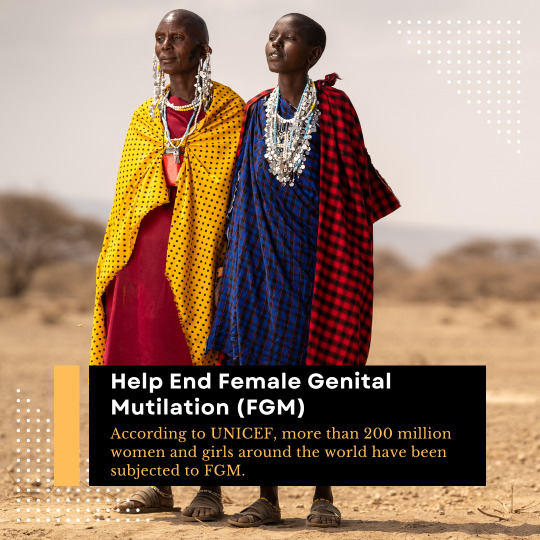
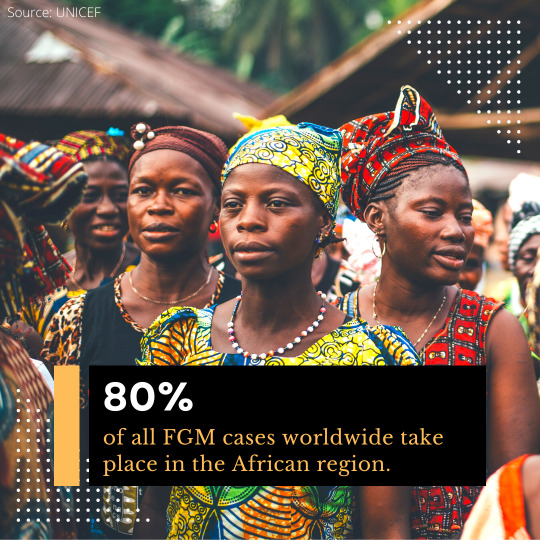
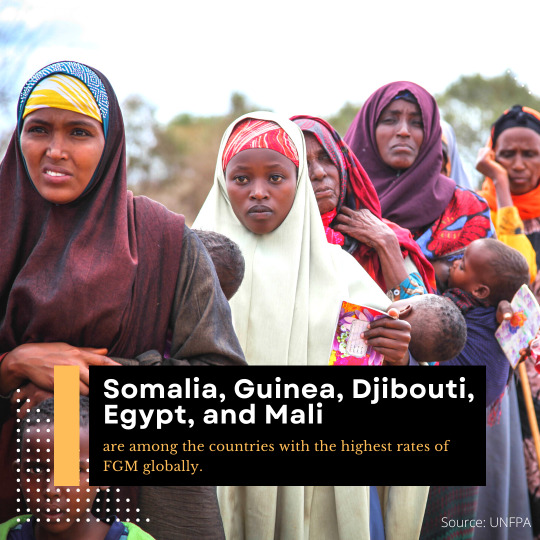
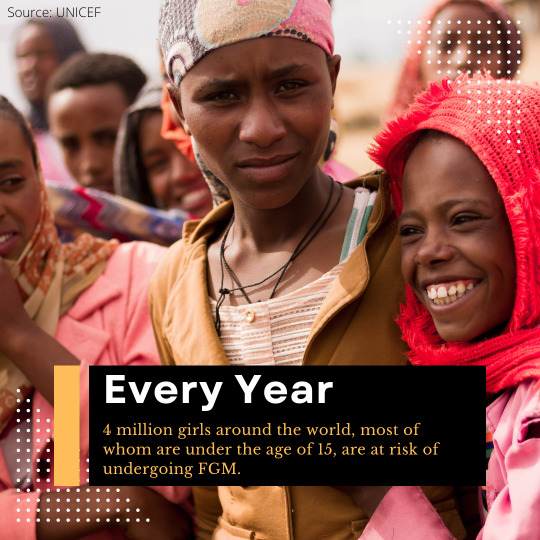
“There has been significant progress made in eliminating the practice in the past 30 years. Young girls in many countries today are at much lower risk of being subjected to FGM than their mothers and grandmothers were in the past. However, progress is not universal or fast enough. In some countries, the practice remains as common today as it was three decades ago.” - Unicef
Explore today 5 tips from The Global Goals on how to eradicate Female Genital Mutilation (FGM)!
➡️ https://bit.ly/3Ps1kZl
#female genital mutilation#fgm#end fgm#stop fgm#women#women's rights#women empowerment#feminism#girls#girls' rights#girl child#children#children's rights#human rights#stop violence against women#stop violence#violence against women#vaw#elimination of violence against women#gender based violence#gbv#somalia#mali#djibouti#egypt#guinea#ethiopia#kenya#sierra leone
71 notes
·
View notes
Text
I hate seeing moids online blame women for the FGM that goes on in African countries. “You’re blaming men but the women are the ones performing the operation!” FOR WHO? FOR WHO?
These women grew up being told that if they don’t mutilate their genitals they’ll be poor, and starve to death in the streets because a man won’t want to marry them.
In Africa, studies and observations have established the fact that the justifications linked to the practice of FGM are quite numerous and in some jurisdictions, compelling. Noteworthy is that the practice varies among several communities, although they are hinged on some common themes such as family honor sake, health, marriageability, and women's status in the communities, among others [25,26,27]. On many occasions, these justifications are presented in a positive manner while less credence is lent to its consequences in order to emphasize its advantages in line with the social-cultural perspective [25]. In fact, in numerous practicing communities and tribes in Africa and the Middle East, FGM is considered a requisite for marriage, and any uncircumcised girl has no chance of being married.
The mothers carrying this out isn’t any less abhorrent to me, and I wish they would beat these men, kill them, for demanding this be a marriage requirement. For marriage being a requirement to live itself. That doesn’t make this any less a patriarchal concept that was started by, and made to please men.
And then you have the loser scrotes who compare circumcision to genital mutilation, when the reality is it’s a much less damaging procedure. Girls who have had FGM performed on them deal with the pain of it every day from tissue damage. They experience many UTIs, genital ulcers, reproductive tract infections, increased risk for HIV, and more. But yeah Sheldon, tell us about how circumcision is “just as bad” because you didn’t get a say in the matter. I’m not saying they shouldn’t get a say but you expect me to give a fuck that your fully functioning dick doesn’t have skin on the outside, and treat that as equal to little girls, are being subjected to an excruciating process that can kill them and will lead to life long health problems? So that they can be married off in CHILD MARRIAGES and forced to give birth to babies when they are babies themselves? Actually go fuck yourself.
Go support women like Dora Nyambe, and Theresa Kachindamoto who help girls escape from child marriages, and build schools for them.
Dora Nyambe’s: Go Fund Me, YouTube, Instagram
Unfortunately I can’t find anything to help fund Theresa’s mission, but if you have anything please, PLEASE share. Aside from that, here’s a link as well to Girls not Brides.
18 notes
·
View notes
Photo



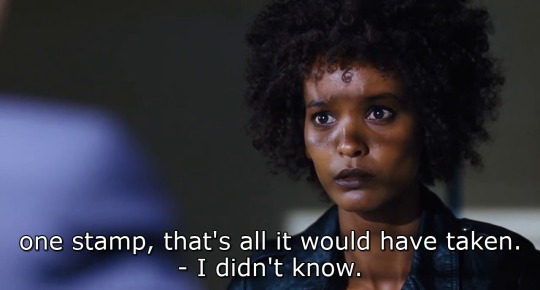


Desert Flower (Sherry Hormann, 2009)
#Desert Flower#drama film#Waris Dirie#refugees#modeling#biographical film#London#2000s movies#Somalia#excision#female genital mutilation#Africa#immigrants#England#UK#Sherry Hormann#Liya Kebede#Sally Hawkins#homelessness#Fleur du désert#supermodels#Wüstenblume#fashion models#Flor del desierto#Цветок пустыни#デザートフラワー#women#autobiography#women's rights#FGM
6 notes
·
View notes
Text
tumblr has a problem with acting like sex based oppression just… doesn’t exist. as if female / afab babies don’t suffer from fgm and literal femicide (where a female baby is killed for being born female… and that’s it). in many countries, as a female, you are in danger from the moment you are born due to the possibility of genital mutilation, murder because you’re not a boy, or being married off / sold off at a very young age. sex based oppression is very real, stop being so western-centric and showing how sheltered you really are.
13 notes
·
View notes
Text
Understanding and Combating Female Genital Mutilation (FGM) #FGM #FemaleGenitalMutilation
Female genital mutilation (FGM), also known as female genital cutting, is a harmful and destructive practice that involves the partial or complete removal of a woman’s external genitalia. It is a violation of human rights and has serious physical, psychological, and social consequences. FGM is most commonly practiced in African and Middle Eastern countries, but it also occurs in other parts of…

View On WordPress
#advocacy#community mobilisation#education#Female genital mutilation#FGM#health consequences#Human Rights#women&039;s rights
5 notes
·
View notes